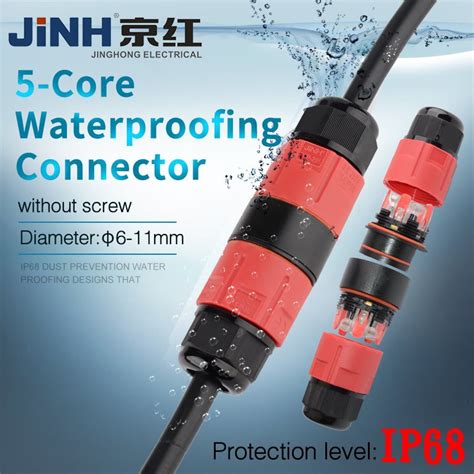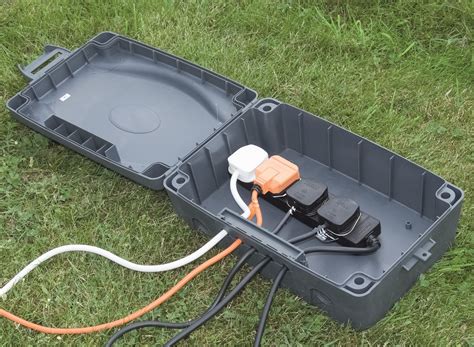electrical box ground wire A metal electrical box must have a separate grounding pigtail connected to it, then connected to all the ground wires in that box. Looping the feed wire ground around the grounding screw and .
Types of Metal Brackets. Metal brackets come in diverse types, each tailored to meet specific needs and applications. Here are some commonly used types of metal brackets: L-shaped Brackets: These brackets have a right-angle shape resembling the letter "L." They commonly provide corner support, reinforce joints, and secure two surfaces together.
0 · underground waterproof electrical boxes
1 · outdoor in ground electrical boxes
2 · landscaping electrical floor box
3 · in ground waterproof electrical box
4 · in ground electrical outlet box
5 · exterior waterproof electrical box
6 · exterior in ground electrical box
7 · above ground electrical junction box
A metal bracket is an adapter that attaches one object, such as a shelf, to another, such as a wall. Read on to learn about types, applications and more about metal brackets.
underground waterproof electrical boxes
In a system with metal boxes, the pigtail method is considered the most secure. In this arrangement, both the receptacle and metal box are grounded. Ground wires are spliced together and attached with a pigtail to the box and receptacle. The grounding wire nut shown has a hole in its top that makes installing a pigtail . See moreWhere plastic boxes are used, a ground wire typically connects to the receptacle only. Here, where wiring runs through this box to another box, a grounding pigtail connects to the device. See more
outdoor in ground electrical boxes
Many older ceiling fixtures are not grounded. Recent codes, however, call for grounding electrical wires in fixtures. To do so, connect the fixture's ground lead (usually a stranded wire) to the . See more
Most older switches are not grounded; many switches do not even have a ground screw. However, recent codes call for switches to be grounded. Replace an older switch with a newer one that has a ground screw and connect it to a ground wire. See more
Installing a ground wire to your electrical service panel can be done easily with a few hand tools. The codes of some localities differ from NEC (National Electric Code) .
A metal electrical box must have a separate grounding pigtail connected to it, then connected to all the ground wires in that box. Looping the feed wire ground around the grounding screw and .
Ground wires (equipment grounding conductors) connect to every part of the electrical system that could possibly become energized—metal boxes, receptacles, switches, fixtures—and, through three-pronged plugs, the . Learn how to ground a metal electrical box in 3 easy steps. This guide will walk you through the process, from identifying the grounding point to connecting the ground wire. .
Grounding offers excess electricity the most effective and safest route from an appliance back to the ground by way of an electrical panel. Electrical grounding is a backup pathway that is generally only used if there is .
landscaping electrical floor box
Ground wires are spliced together and attached with a pigtail to the box and receptacle. The grounding wire nut shown has a hole in its top that makes installing a pigtail easier. Other methods also work well if installed correctly. Installing a ground wire to your electrical service panel can be done easily with a few hand tools. The codes of some localities differ from NEC (National Electric Code) standards. Be sure to check local codes before performing any wiring job.A metal electrical box must have a separate grounding pigtail connected to it, then connected to all the ground wires in that box. Looping the feed wire ground around the grounding screw and using the end for a pigtail connection has been disallowed, beginning with the 2020 National Electrical Code (NFPA 70) article 250.148(C).Ground wires (equipment grounding conductors) connect to every part of the electrical system that could possibly become energized—metal boxes, receptacles, switches, fixtures—and, through three-pronged plugs, the metallic covers and frames of tools and appliances.

Learn how to ground a metal electrical box in 3 easy steps. This guide will walk you through the process, from identifying the grounding point to connecting the ground wire. With our help, you can safely ground your metal electrical box . Grounding offers excess electricity the most effective and safest route from an appliance back to the ground by way of an electrical panel. Electrical grounding is a backup pathway that is generally only used if there is a fault in the wiring system. A grounded outlet has three prongs: two flat prongs for the hot and neutral wires, plus a round prong for the ground wire. This third prong provides a safe path for excess electrical current to flow back to the ground, protecting you from potential shocks and .
Your house wiring is an electrical system, connected to ground at your electrical panel. Tools, appliances, lights and electronics need specific voltages to operate correctly and safely, and system grounding stabilizes these voltages.
The equipment-grounding wires then connect to the screw, making the metal box part of the grounding system. An alternative is to use a ground clip, which is an approved piece of hardware that slides onto the edge of a metal box and anchors the equipment-grounding conductor tightly against the metal.
You don't need a wire to ground the switch, the mounting screws satisfy the requirement when used with metal boxes, and there is an exception that allows you to not satisfy grounding requirements if no grounding means exists for replacement switches. Ground wires are spliced together and attached with a pigtail to the box and receptacle. The grounding wire nut shown has a hole in its top that makes installing a pigtail easier. Other methods also work well if installed correctly. Installing a ground wire to your electrical service panel can be done easily with a few hand tools. The codes of some localities differ from NEC (National Electric Code) standards. Be sure to check local codes before performing any wiring job.A metal electrical box must have a separate grounding pigtail connected to it, then connected to all the ground wires in that box. Looping the feed wire ground around the grounding screw and using the end for a pigtail connection has been disallowed, beginning with the 2020 National Electrical Code (NFPA 70) article 250.148(C).
Ground wires (equipment grounding conductors) connect to every part of the electrical system that could possibly become energized—metal boxes, receptacles, switches, fixtures—and, through three-pronged plugs, the metallic covers and frames of tools and appliances. Learn how to ground a metal electrical box in 3 easy steps. This guide will walk you through the process, from identifying the grounding point to connecting the ground wire. With our help, you can safely ground your metal electrical box .
Grounding offers excess electricity the most effective and safest route from an appliance back to the ground by way of an electrical panel. Electrical grounding is a backup pathway that is generally only used if there is a fault in the wiring system. A grounded outlet has three prongs: two flat prongs for the hot and neutral wires, plus a round prong for the ground wire. This third prong provides a safe path for excess electrical current to flow back to the ground, protecting you from potential shocks and . Your house wiring is an electrical system, connected to ground at your electrical panel. Tools, appliances, lights and electronics need specific voltages to operate correctly and safely, and system grounding stabilizes these voltages. The equipment-grounding wires then connect to the screw, making the metal box part of the grounding system. An alternative is to use a ground clip, which is an approved piece of hardware that slides onto the edge of a metal box and anchors the equipment-grounding conductor tightly against the metal.
metal rod storage box

in ground waterproof electrical box
in ground electrical outlet box
exterior waterproof electrical box
Arc welding joints are complex structures composed of four distinct regions, each with unique characteristics and properties: Weld Seam: The central part of the joint where the filler material and base metals have melted .
electrical box ground wire|in ground electrical outlet box